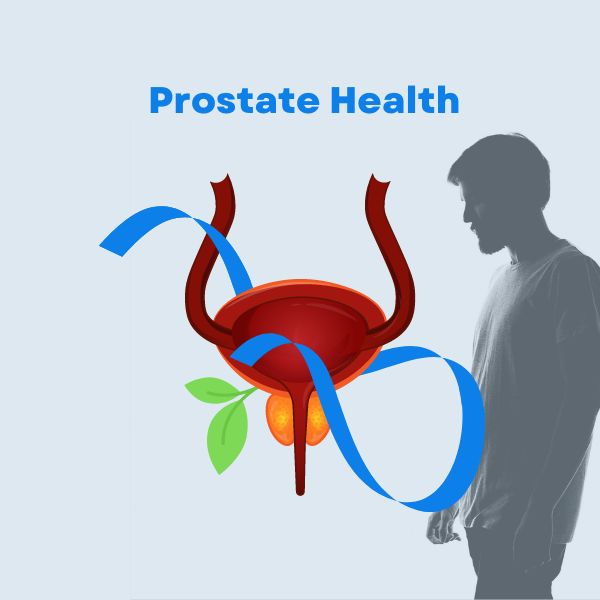Men’s health is a crucial aspect of overall well-being, yet it often receives less attention than other health areas. As men age, they become more susceptible to certain conditions that, if left unchecked, can lead to significant health complications. In this article, we’ll explore the critical health concerns for men, the symptoms to watch out for, and tips for maintaining optimal health at every stage of life.
- Cardiovascular Health: The Heart of the Matter
Heart disease remains one of the leading causes of death among men worldwide. Risk factors like high blood pressure, high cholesterol, smoking, and a sedentary lifestyle can contribute to the development of cardiovascular problems. Men should prioritize regular check-ups to monitor their blood pressure, cholesterol levels, and heart health overall.
Common Symptoms to Watch For:
- Chest pain or discomfort
- Shortness of breath
- Irregular heartbeats or palpitations
- Dizziness or fatigue
Prevention Tips:
- Regular physical activity (at least 30 minutes a day)
- A heart-healthy diet rich in fruits, vegetables, and lean proteins
- Avoiding tobacco use and limiting alcohol consumption
- Stress management techniques, such as meditation or yoga
- Prostate Health: A Vital Concern for Aging Men
As men grow older, the risk of developing prostate issues increases. Benign prostatic hyperplasia (BPH), or an enlarged prostate, is common and can cause urinary difficulties. More seriously, prostate cancer is one of the most frequently diagnosed cancers in men, particularly over the age of 50.

Common Symptoms of Prostate Issues:
- Frequent urination, especially at night
- Difficulty starting or maintaining urination
- Weak or interrupted urine flow
- Blood in the urine or semen
Prevention and Screening:
- Regular prostate exams, especially for men over 50
- A balanced diet rich in antioxidants and low in red meat
- Staying physically active and maintaining a healthy weight
- Discussing family history with a healthcare provider
- Mental Health: Breaking the Silence
Men often hesitate to seek help for mental health issues, but mental well-being is just as important as physical health. Conditions like depression, anxiety, and stress-related disorders affect men of all ages, and the stigma around seeking help can make these problems worse.
Common Symptoms of Mental Health Issues:
- Persistent sadness or hopelessness
- Loss of interest in activities once enjoyed
- Changes in sleep patterns (insomnia or oversleeping)
- Irritability, anger, or aggressive behavior
- Thoughts of self-harm or suicide
Ways to Improve Mental Health:
- Open communication about feelings with trusted friends, family, or professionals
- Seeking therapy or counseling when necessary
- Staying connected with loved ones and building a support network
- Regular physical activity, which is proven to improve mood and reduce anxiety
- Limiting alcohol and drug use, as they can worsen mental health conditions
- Sexual Health: A Key Component of Well-Being
Sexual health is an essential part of overall health, yet men often feel uncomfortable discussing problems like erectile dysfunction (ED) or low libido. ED, in particular, can be a sign of underlying health issues such as heart disease or diabetes.

Common Symptoms to Be Aware Of:
- Difficulty achieving or maintaining an erection
- Reduced sexual desire
- Pain during intercourse
- Fertility concerns
Tips for Maintaining Sexual Health:
- Open communication with a healthcare provider about sexual concerns
- Managing chronic health conditions like diabetes or heart disease
- Regular exercise to improve circulation and stamina
- Reducing stress and anxiety, which can negatively impact sexual performance
- Maintaining a Healthy Weight: The Key to Longevity
Obesity is a significant health concern for men, leading to increased risks of heart disease, type 2 diabetes, and certain cancers. Men should focus on maintaining a healthy weight through diet and exercise.
Common Health Issues Linked to Obesity:
- Type 2 diabetes
- Hypertension (high blood pressure)
- Sleep apnea and breathing difficulties
- Increased risk of stroke and heart disease
Weight Management Strategies:
- Regular physical activity, including both cardio and strength training
- A balanced diet with portion control and nutrient-dense foods
- Avoiding crash diets or unhealthy weight loss methods
- Seeking support from a nutritionist or healthcare professional when needed
Conclusion: Taking Control of Your Health
Men’s health should be a priority at every stage of life. Regular check-ups, maintaining a balanced diet, and staying active are important ways for men to take charge of their well-being. Understanding the symptoms of common health issues and seeking medical advice early can make a significant difference in preventing serious conditions. By prioritizing physical and mental health, men can lead longer, healthier, and more fulfilling lives.Men’s health should be a priority at every stage of life. Regular check-ups, maintaining a balanced diet, and staying active are important ways for men to take charge of their well-being. Understanding the symptoms of common health issues and seeking medical advice early can make a significant difference in preventing serious conditions. By prioritizing physical and mental health, men can lead longer, healthier, and more fulfilling lives.Men’s health should be a priority at every stage of life. Regular check-ups, maintaining a balanced diet, and staying active are important ways for men to take charge of their well-being. Understanding the symptoms of common health issues and seeking medical advice early can make a significant difference in preventing serious conditions. By prioritizing physical and mental health, men can lead longer, healthier, and more fulfilling lives.
